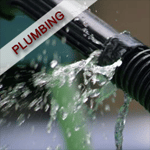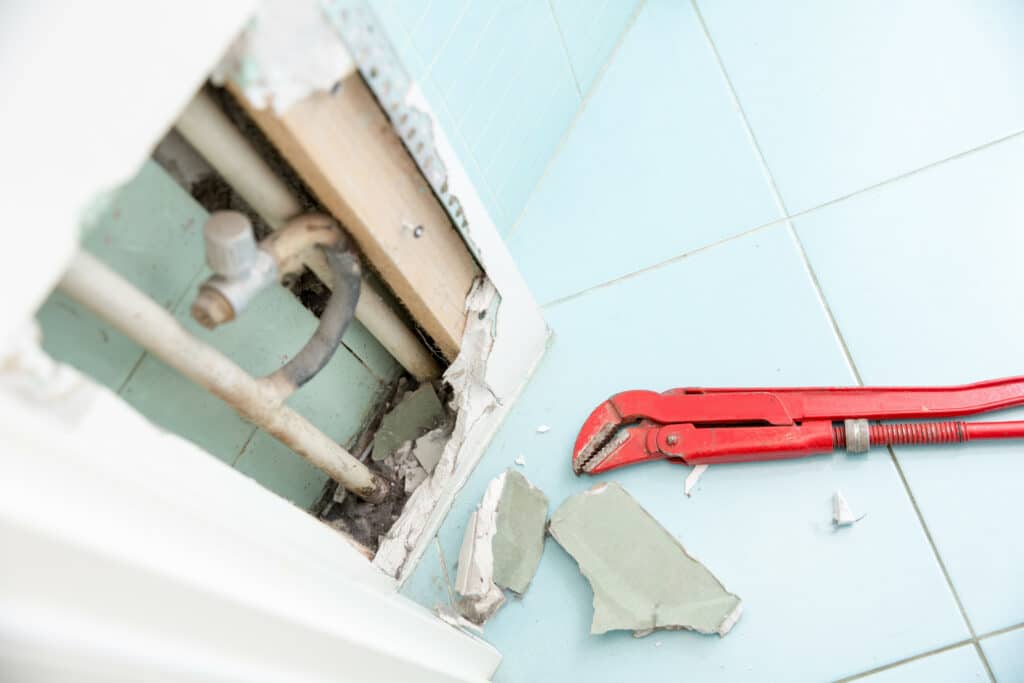Don’t Underestimate the Power of Pinhole Leaks
Don’t Underestimate the Power of Pinhole Leaks

You’ve noticed your water bill is up a bit, your water pressure is down and some other oddities with your plumbing in West Milford or the surrounding area. You’re not sure what’s going on, but your spouse has mentioned they thought they heard the water running the other day when no one was using any water.
If you’ve got these and some other signs, there’s a good chance you have a pinhole leak. Read on to learn more about pinhole leaks, or give our West Milford plumbing pros a call today!
What is a Pinhole Leak?
Most of us envision a disaster when a pipe leaks. The pipe ruptures, water goes spraying everywhere, and flooring, carpeting, furniture, drywall, and other household items get flooded out. This does happen, but a pinhole leak is something different. A pinhole leak is a hole that’s usually 1/8th inch or smaller, and the leakage is usually a slow drip that goes undetected until someone notices something wrong.
What are the Signs of a Pinhole Leak?
There are a number of signs of a pinhole leak. Here are the most common ones:
1) Increased Water Bills
One obvious sign of a possible leak is an unusual increase in your water bill. It’s increased even though you’re not using any more water than usual. Even if it’s a small, slow leak, it’ll show up on your bill. Keeping an eye on your monthly bill will help you catch any unusual increases in usage.
2) Water Pressure Issues
Another sign of a leak is reduced water pressure in your home. You’ll notice this when you shower, run the tap, etc. Since the leaking pipe has an opening for the water to escape, it’ll affect the pressure in your entire home.
3) Visible Damage

If a leak goes unnoticed long enough, you’ll start to notice visible signs of water damage. Water stains, softened drywall, a bubble in the paint, most often on the ceiling, wet areas in your carpeting, warping in your hardwood floors, and so on.
4) Mold and Mildew
Pinhole leaks are infamous for causing mold and mildew growth. Since the leaks often occur in your walls and go unnoticed and provide the perfect environment for the growth of either or both.
5) Dripping Sounds
If you hear water dripping or even a sound like water spraying, you most likely have a pinhole leak.
6) Pipe Discoloration
Your pipes should always look copper colored. If they look brown, green, or blue, this means they’re corroding due to water leakage.
7) Condensation
Your pipes should never look wet or damp. If they are, they’re either wet from the leak or condensation from it.
Please keep in mind that pinhole leaks are difficult to find. They can occur anywhere in your walls, or anywhere along the length or your plumbing system. One way to see if you have a leak is to shut off your water supply and watch your meter. If it continues to run after you shut off the water, you’ve got a leak somewhere in your home.
What Causes Pinhole Leaks?
Pinhole leaks are caused by what’s known as pitting corrosion. This is a type of corrosion that causes holes in a material. Here are some causes of this corrosion:
- Chemical – One of the most likely causes of damage to your pipes is chemical damage. While the pH of your water doesn’t vary a lot to impact the quality for human consumption, it can have an effect on your pipes. Various chemical interactions depending on the pH and make up of your local water supply can erode the coating that protects the inside of your pipes. Hard water is known to do this so installing a whole house water softening system will help prevent corrosion and leaks.
- Mechanical – This is caused by sediments and contaminants, such as heavy metals in your water. These contaminants will wear down the inside of your pipes, eventually causing a leak. This damage is also common with hard water, well water, and areas with unusually high water pressure.
- Localized – Another possible cause of leaks is localized damage due to low quality pipes or improper installation. Damaged pipes need to be replaced as soon as possible.
- Non-Uniformities – Another, less likely cause of pinhole leaks is non-uniformity in your plumbing. Pipes that were retrofitted or only partially replaced can be an issue. If your copper plumbing is connected to a different metal or a joint of a different metal, they will interact and cause corrosion. If you have a home with old plumbing and outdated connections, you should have your home checked by a plumbing professional.
West Milford Leak Detection & Repair Experts
If you think you may have a pinhole leak, call us at Mark Lindsay and Son Plumbing & Heating, and we’ll be there to find and repair your leaking pipes.

